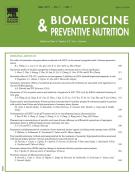The tumor rejection effect of protein components from medicinal fungus - 26/11/11
 , Yijie Chen a, Honghong Liu a, Rong Luan a, Tao Che a, Shuai Jiang a, Dongyang Xie c, Hui Sun a, ⁎
, Yijie Chen a, Honghong Liu a, Rong Luan a, Tao Che a, Shuai Jiang a, Dongyang Xie c, Hui Sun a, ⁎ 
Abstract |
Medicinal fungi are renowned for their antitumor activity and have been used in oriental countries for thousands of years. Modern medicine has documented that polysaccharides are the main components responsible for antitumor activity in medicinal fungi. We reported that a water-soluble component Yt from Agrocybe aegerita exhibited tumor rejection activity. The component was determined to contain proteins (60%, two lectins, serine proteinase and several unknown proteins), low molecular weight compounds (40%) and trace polysaccharides. Yt showed high antitumor activity in several tumor cell lines. In tumor-bearing BALB/c mice, Yt treatment caused tumor (hepatocellular carcinoma H22 and sarcoma S180) rejection at a low concentration (2.5mg/kg body weight) without significant toxicity. In a nude mouse model, Yt treatment did not induce significant changes in tumor size but prolonged the lifespan. In vivo data suggested that Yt induced tumor rejection by stimulating the immune response. Spleen cell proliferation was promoted ex vivo by Yt treatment. When mice were treated with Yt, splenocyte cytotoxic activity was enhanced and the mRNA level of cytokines was altered. Furthermore, the antitumor activity of Yt sharply declined when the proteins were degraded by proteinase K, which showed that proteins were the main antitumor component in Yt. Using the same isolation procedure, the components from three other medicinal fungi Cordyceps militaris, Lentinula edodes and Ganoderma lucidum demonstrated similar tumor rejection effects as Yt. All our findings indicated that besides polysaccharides, water-soluble protein components possessing high antitumor activity exist in medicinal fungi and require further study.
Le texte complet de cet article est disponible en PDF.Keywords : Medicinal fungus, Mushroom, Protein, Antitumor
Plan
Vol 1 - N° 4
P. 245-254 - octobre 2011 Retour au numéroBienvenue sur EM-consulte, la référence des professionnels de santé.
L’accès au texte intégral de cet article nécessite un abonnement.
Déjà abonné à cette revue ?

